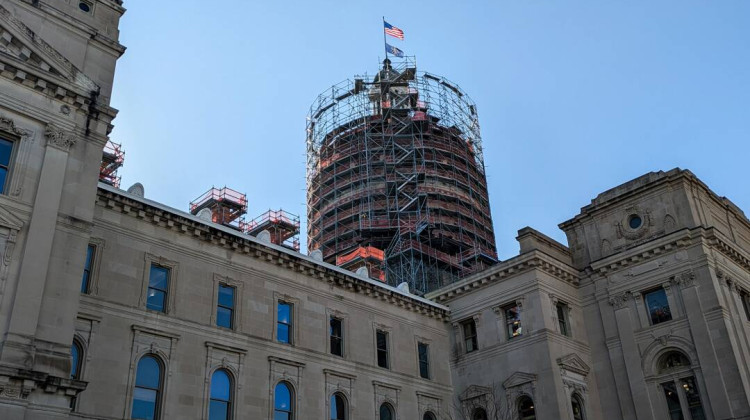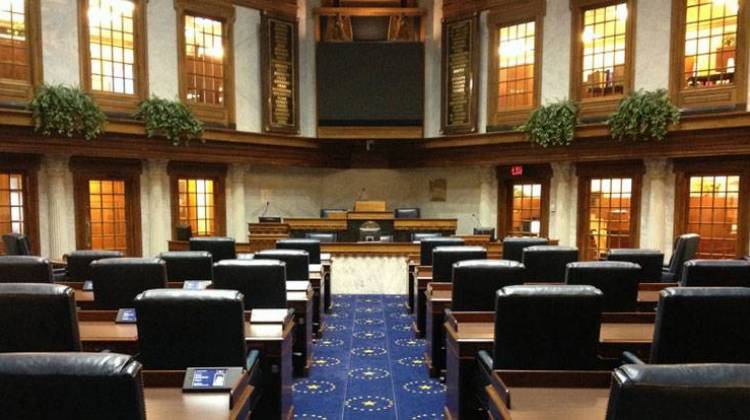
Advocates say recently signed bills that could weaken debt protections for Hoosiers are “frustrating.”
PixabayAdvocates say recently signed bills that could weaken debt protections for Hoosiers are “frustrating.” Two bills signed into law following the 2024 session limit some banking protections.
Erin Macey is the director of the Indiana Community Action Poverty Institute. She said she has concerns over these measures and their effect on Hoosier’s bank accounts and financial well-being.
“I find it even more frustrating in a context where Hoosiers really need the legislature to take their interests to heart,” Macey said. “We’re hearing from people across the state that they need support with housing, that food is getting expensive, that they need access to good jobs, that they're struggling with medical debt, overdraft fees and payday loans. And yet, what the legislature is prioritizing, at least in these committees, is letting banks escape accountability in the courts and giving them even more power to dictate and change their minds about what's in our agreements with them.”
Macey said SEA 188 will change the statute of limitations, or time Hoosiers have to dispute certain charges with their banks, from six years to two years.
“It will really limit and narrow the time frame with which Hoosiers have to, to challenge issues with their bank accounts, with their CDs, with their retirement savings,” she said. “The scope of it is really quite broad.”
Throughout the measure’s time in the legislature, Macey and other lawmakers advocated against it and said it provides fewer opportunities for Hoosiers to settle with their banks over unfair charges.
Those in support of the legislation argued financial institutions have been subject to class action lawsuits over the past few years that have been settled due to the high legal costs of these cases.
Join the conversation and sign up for the Indiana Two-Way. Text "Indiana" to 765-275-1120. Your comments and questions in response to our weekly text help us find the answers you need on statewide issues, including our project Civically, Indiana and our 2024 legislative bill tracker.
Macey said it is unfair to make these judgments in the legislature, and that it is more appropriate for courts to handle this.
“My understanding is that if a lawsuit is frivolous, they can file a motion to dismiss, and they have an opportunity to have that thrown out,” she said. “Instead, we're taking a whole set of court cases, current and future, and bringing them to the legislature to decide.”
HEA 1284 will allow banks or credit unions to make changes to Hoosier’s bank accounts as long as they send a written notice to customers. If the consumer doesn’t respond to written notices or close their account within a 30-day time frame to indicate non-compliance with these changes, banks and credit unions can interpret the consumer’s silence as agreement to these changes.
Macey said these time frames and conditions can similarly limit Hoosier's abilities to litigate against these changes.
“One of the things we expect to happen immediately is that Hoosiers will likely receive an arbitration agreement that will prohibit them from taking cases to court or joining a class action,” she said. “Instead, they will have to deal with any issues they have through an arbitrator”
Both laws take effect July 1.
Macey said any Hoosiers who feel they’re being treated unfairly by their banks should file a complaint with the Consumer Financial Protections Bureau or the Indiana Department of Financial Institutions.
She also encouraged Hoosiers to report any changes they see as a result of legislation or any new correspondence from banks to the Indiana Community Action Poverty Institute.
Violet is our daily news reporter. Contact her at vcomberwilen@wfyi.org or follow her on Twitter at @ComberWilen.
 DONATE
DONATE






 Support WFYI. We can't do it without you.
Support WFYI. We can't do it without you.